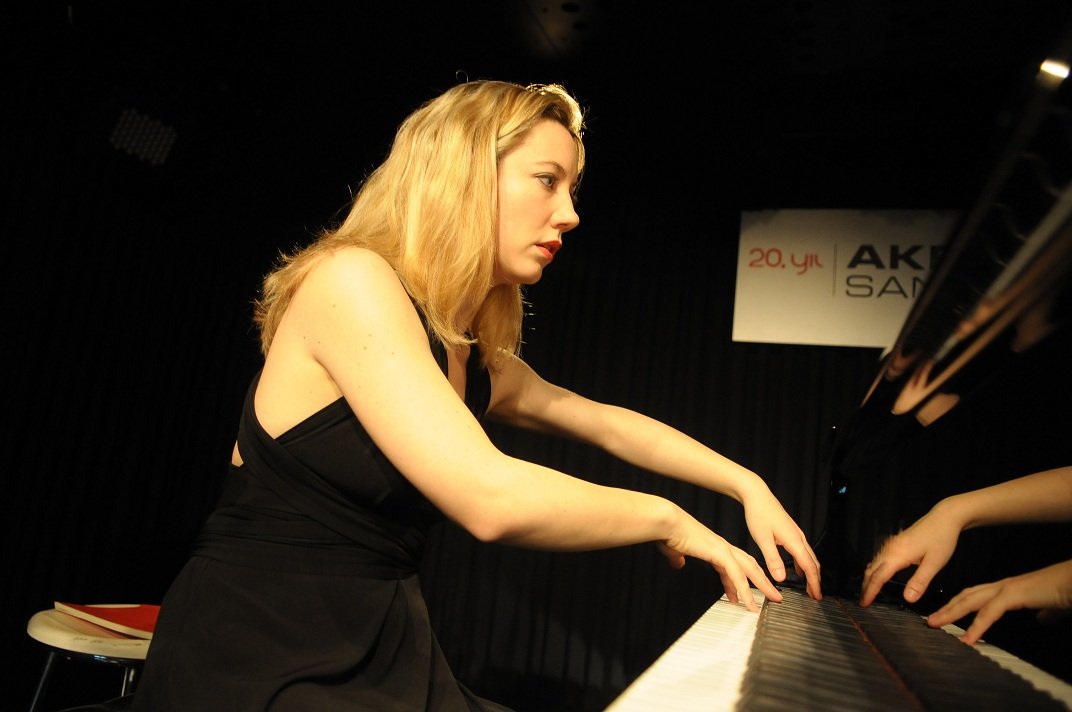In the Middle of Things
Chamber music by Michael Zev Gordon
Fidelio Trio; Julian Bliss, clarinet
This is a fascinating recording as Michael Zev Gordon’s musical styles are so eclectic. The Diary Piece 2015 give a snap-shot introduction to his compositions as they move from the immediate lyricism of Long Time to the more sharply focussed Shining Day. Fragments for a Diary are equally diverse but in all cases the compositions are finely honed for intimate response. This is certainly worth exploring.
Elgar: Caractacus
Huddersfield Choral Society, Martyn Brabbins
HYPERION CDA 68254
This new recording under Martyn Brabbins seems very timely, reflecting as it does the concord that came out of the hostile encounter between the British leader, Caratacus, and the Roman forces under the Emperor Claudius. The fact that the outcome was peaceful and is historically verified is all the more telling – compromise is possible! A strong line-up of familiar British singers and the Huddersfield Choral Society make this a fine new acquisition. My only caveat is the cover picture – Lawrence’s Satan summoning his Legions – hardly fitting for a British worthy.
The Romantic Piano Concerto – 78
Howard Shelley, piano; Tasmanian Symphony Orchestra
HYPERION CDA 68240
There always seem to be new areas to explore here, and while the Clara Schumann is as splendid – particularly the final movement – as one might expect from a child prodigy, the other items are equally worth our attention. They are Konzertstuck by Ferdinand Hiller, Rondo de concert by Henri Herz and Le reve by Friederich Kalkbrenner. I assume some listeners will be collecting the whole edition and this certainly justifies its continual opening up of lost treasures.
Bach: cello suites
Alban Gerhardt, cello
HYPERION CDA 68261/2
There is a fine improvisatory sense throughout this recording which pays off. One is never quite sure where Alban Gerhardt will go next and it is almost as if the tempi and phrasing come out of the playing rather than in any way being pre-planned. So much the better for a refined but entirely engaging approach.
Bach: St Matthew Passion
Mainz Bach chorus and orchestra, Ralf Otto
NAXOS 8.574036-38F
It is always difficult to review a new recording of a work which is such a familiar part of most music lovers’ libraries already. This new recording from Mainz has a relaxed reflective approach, musically very sound and frequently beautifully sung. It uses baroque orchestral forces but a large choir in addition to the many soloists. As such it bridges the best of both worlds. Given the price range for Naxos this will probably become a strong contender for any new-comer who has yet to add the St Matthew to their collection.
Kalman: Ein Herbstmanover
Stadttheaters Giessen, Michael Hofstetter
OEHMS OC 977
The Gay Hussars is not familiar to us these days – fact there have apparently been very few revivals since its initial runs before the First World War. The air of melancholy and at times forced jollity which pervades the work may account for this but ignores the quality of the music itself. Where too often modern productions on DVD can appear to undermine the work, this is a case where seeing the production would certainly have helped.
Hans Gal: Das Lied der Nacht
Osnabruck chorus and orchestra, Andreas Hotz
CPO 555 186-2
Hans Gal has been all but forgotten and this new recording of his 1924 opera Das Lied der Nacht is significantly support by the Hans Gal Society. Escaping from Nazi Germany when his musical career came to an abrupt end, he eventually found a longer term home in Edinburgh. He work is essentially romantic and lyrical, even if not quite as richly orchestrated as Richard Strauss. The work is well structured and deserves its place alongside many of the overlooked compositions within the late romantic tradition.
Reznicek: Suites for orchestra
Weimarer Staatskapelle, Stephan Solyom
CPO 555 056-2
Though the composer is best known for his overture to Donna Diana this collection of three suites for orchestra shows that he was certainly not a one-tune wonder. These are finely crafted, romantic and lyrical works with full romantic orchestration which is highly enjoyable. Don’t dismiss until you have listened!
Beethoven; Eroica variations etc
Florian Glemser, piano
OEHMS OC 1703
There is an intimacy to Florian Glemser playing which I find very appealing. He takes a breezy approach to the Eroica variations but is the Bagatelles which are the most substantial works on the disc and the most compelling. Hopefully we will hear more from him.

